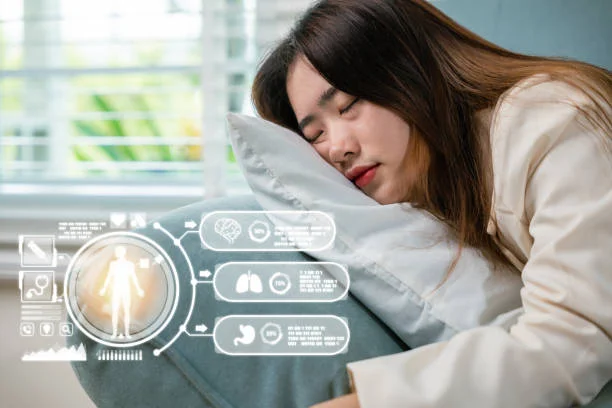Introduction
Sleep is often overlooked in discussions about health and wellness, yet it plays a foundational role in nearly every aspect of our physical and mental functioning. From memory and mood to immunity and metabolism, the quality and quantity of our sleep determine how well we live, work, and feel. Unfortunately, millions of people struggle with sleep disorders that go undiagnosed and untreated, robbing them of rest and vitality.
In recent years, the field of sleep medicine has gained prominence as more people recognize the importance of sleep in overall health. Central to this field is the sleep doctor—a physician who specializes in diagnosing and treating sleep disorders. Whether it’s chronic insomnia, obstructive sleep apnea, or restless legs syndrome, these professionals offer targeted, science-backed solutions that can dramatically improve life quality.
This article explores the critical role of sleep, common sleep disorders, how they affect health, and how a sleep doctor can provide life-changing care.
There’s so much more to discover—browse our related posts!
Why Sleep Matters
Sleep is not just a time of rest—it’s a period of vital biological activity. During sleep, the body repairs tissues, consolidates memories, balances hormones, and restores energy. It also plays a critical role in emotional regulation, learning, and immune defense.
Healthy adults typically require between 7–9 hours of sleep per night, though individual needs may vary. When sleep is disrupted or inadequate, it creates a ripple effect across all areas of health.
Consequences of Poor Sleep:
- Impaired concentration and memory
- Increased risk of depression and anxiety
- Weakened immune system
- High blood pressure and heart disease
- Weight gain and insulin resistance
- Decreased libido and sexual health
- Lowered life expectancy
Consistent sleep deprivation can be as dangerous as chronic illness, yet many people continue to accept poor sleep as “normal.” This is where medical intervention becomes essential.
Common Sleep Disorders
There are over 80 recognized sleep disorders, but several stand out as particularly prevalent and impactful.
1. Insomnia
This is the most common sleep disorder, characterized by difficulty falling asleep, staying asleep, or waking up too early. It may be acute (short-term) or chronic (long-term), often linked to stress, anxiety, depression, or poor sleep hygiene.
Symptoms include:
- Fatigue during the day
- Mood disturbances
- Difficulty concentrating
- Irritability
2. Obstructive Sleep Apnea (OSA)
OSA occurs when the muscles in the throat intermittently relax during sleep, causing breathing to repeatedly stop and start. These pauses can last seconds to minutes and severely disrupt sleep quality.
Warning signs:
- Loud snoring
- Gasping or choking during sleep
- Morning headaches
- Excessive daytime sleepiness
- High blood pressure
Untreated sleep apnea is associated with a higher risk of heart disease, stroke, and type 2 diabetes.
3. Restless Legs Syndrome (RLS)
RLS is a neurological condition that causes uncomfortable sensations in the legs, leading to an uncontrollable urge to move them. Symptoms typically worsen at night, making it difficult to fall asleep.
4. Narcolepsy
Narcolepsy involves overwhelming daytime drowsiness and sudden episodes of sleep, even during activities like driving or working. It may also include muscle weakness triggered by emotions (cataplexy).
5. Circadian Rhythm Disorders
These disorders occur when the body’s internal clock is misaligned with the external environment, such as in shift workers or people suffering from jet lag. This misalignment can lead to insomnia and fatigue.
Each of these conditions requires precise diagnosis and individualized treatment—areas where a sleep doctor offers specialized care.
When Should You See a Sleep Doctor?
Many people delay seeking help for sleep problems, assuming they’ll resolve on their own. However, chronic or disruptive sleep issues should never be ignored. Consider seeing a specialist if you experience:
- Trouble falling or staying asleep at least three nights per week for over a month
- Loud snoring, choking, or gasping during sleep
- Persistent daytime fatigue despite a full night’s rest
- Difficulty concentrating, memory lapses, or mood swings
- Unexplained morning headaches or dry mouth
- Irregular sleep-wake cycles
- Uncontrollable leg movements before bedtime
A sleep doctor can provide answers, diagnosis, and long-term relief tailored to your unique condition.
Who Is a Sleep Doctor?
A sleep doctor is a medical professional trained in sleep medicine—a subspecialty that focuses on diagnosing and treating sleep disorders. These doctors may come from backgrounds in pulmonology, neurology, psychiatry, internal medicine, or otolaryngology, but they all undergo specialized training in sleep science.
What a Sleep Doctor Does:
- Conducts Comprehensive Evaluations: Through detailed history-taking, questionnaires, and physical exams.
- Orders and Interprets Sleep Studies: Such as polysomnography or home sleep apnea tests.
- Diagnoses Specific Sleep Disorders: Based on clinical criteria and test results.
- Prescribed Treatments: These may include CPAP machines, medication, cognitive-behavioral therapy, lifestyle changes, or surgery.
- Monitors Long-Term Progress: Adjusts treatment as needed and provides follow-up care.
By addressing both physical and behavioral causes of poor sleep, sleep doctors provide holistic and long-lasting solutions.
Diagnostic Tools Used in Sleep Medicine
Modern sleep medicine relies on cutting-edge tools and tests to diagnose sleep disorders accurately.
1. Polysomnography (Sleep Study)
Conducted overnight at a sleep center, this test measures:
- Brain waves
- Oxygen levels
- Heart rate
- Breathing patterns
- Eye and leg movements
It’s commonly used to diagnose sleep apnea, narcolepsy, and parasomnias.
2. Home Sleep Apnea Test (HSAT)
A more convenient, at-home version of the sleep study, suitable for detecting moderate to severe obstructive sleep apnea.
3. Multiple Sleep Latency Test (MSLT)
Measures how quickly you fall asleep in a quiet environment during the day. It’s useful for diagnosing narcolepsy and excessive daytime sleepiness.
4. Actigraphy
A wearable device that tracks movement and estimates sleep patterns over several days or weeks.
These tools allow the sleep doctor to pinpoint the source of the problem and create a personalized treatment plan.
Treatment Options for Sleep Disorders
Treatment depends on the specific diagnosis but may include one or more of the following approaches:
1. Continuous Positive Airway Pressure (CPAP)
Used for sleep apnea, this device keeps airways open by delivering constant air pressure through a mask worn during sleep.
2. Cognitive Behavioral Therapy for Insomnia (CBT-I)
A first-line treatment for chronic insomnia, CBT-I helps patients change unhelpful thoughts and behaviors that interfere with sleep.
3. Medications
- For insomnia: Short-term use of sedatives or non-addictive sleep aids
- For RLS or narcolepsy: Dopaminergic drugs, stimulants, or antidepressants
- For anxiety or depression-related sleep issues: SSRIs or other appropriate medications
4. Light Therapy
Useful for circadian rhythm disorders, light boxes simulate natural sunlight to reset the internal clock.
5. Lifestyle Modifications
- Avoid caffeine and alcohol before bed
- Establish a consistent sleep schedule
- Create a relaxing bedtime routine
- Use your bed only for sleep and intimacy
- Reduce screen time in the evening
These evidence-based treatments, guided by a sleep doctor, can restore restful nights and energized days.
The Long-Term Impact of Treating Sleep Disorders
Quality sleep is more than just rest—it’s the foundation of a healthy, vibrant life. Treating sleep disorders doesn’t just improve nightly rest—it can:
- Lower the risk of chronic diseases
- Improve mental health and emotional stability
- Enhance productivity and focus
- Reduce the risk of accidents and injuries
- Strengthen the immune system
- Support weight management and metabolism
In many cases, individuals who address their sleep issues experience dramatic improvements in mood, energy, and quality of life.
The Future of Sleep Medicine
As research into sleep deepens, several exciting advancements are shaping the future of sleep care:
- Artificial intelligence and machine learning to analyze sleep data
- Wearable tech for real-time sleep monitoring
- Tele-sleep services to consult with a sleep doctor remotely
- Personalized medicine based on genetics and biomarkers
- Innovative therapies like nasal implants and positional therapy devices
These innovations are making sleep diagnostics and treatments more accessible, effective, and individualized.
Conclusion
Sleep is one of the most powerful yet underutilized tools in achieving optimal health. Whether you’re battling fatigue, insomnia, snoring, or disrupted sleep cycles, you don’t have to suffer in silence. A qualified sleep doctor can uncover the root cause of your sleep issues and guide you toward effective, science-based solutions.
Prioritizing sleep is not a luxury—it’s a necessity. And with the help of sleep medicine, restful nights and energized days are well within reach.
Don’t miss out on more great reads—click through our featured posts!






